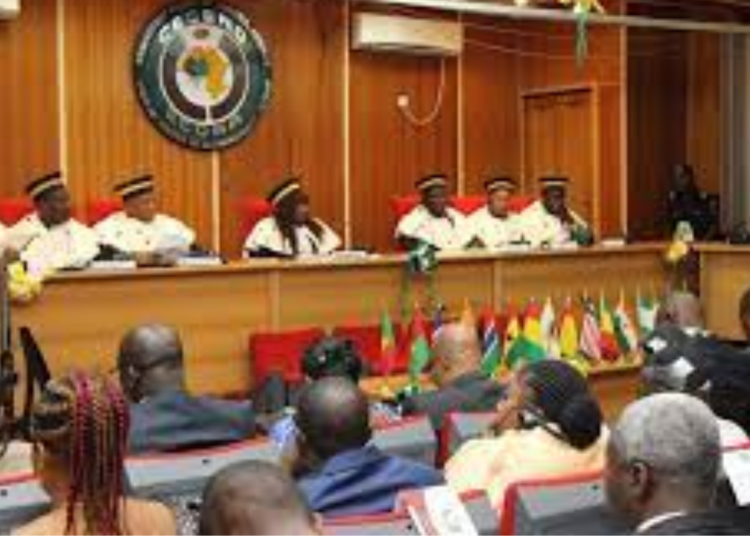Hearing will resume on 2nd March 2023 at the ECOWAS Community Court of Justice in a case brought by the brother of a Nigerian who was among 58 ECOWAS citizens killed by security agents of The Gambian government in 2005.
This was disclosed in a statement issued by the Media unit of the Community Court stressing that the case was adjourned to enable the government of The Gambian time to make its submissions.
The 58 people were killed when the boat in which they were migrating to Europe was seized by the country’s Navy on 21st July 2005.
At the hearing on February 16, 2023, the presiding judge, Justice Edward Amoako Asante, adjourned for continuation of hearing after the Applicant informed the Court that both parties were unable to reach a settlement and his intention to proceed with the hearing of the substantive matter.
The Court also noted the absence of the Respondent state – The Gambia.
In suit no. ECW/CCJ/APP/34/20 filed on September 3, 2020 at the Registry of the Court by Mr Marshal Abubakar, counsel to Kehinde Enagameh, brother of the deceased, the applicant alleged that the victims were killed on the order of the country’s former President, Yaya Jammeh.
Citing some cited articles of the African Charter on Human and Peoples’ Rights, Universal Declaration on Human Rights and the International Covenant on Civil and Political Rights, Mr Abubakar claimed the violation of the deceased’s rights to life, dignity of the human person, physical and mental health, liberty, freedom of movement, fair hearing and presumption of innocence, property, freedom from discriminations, equality before the law, and right to remedy by competent national courts.
He said that the deceased Omozernoje Paul Enagameh was among 58 ECOWAS (citizens comprising Nigerians, Ghanaians, Sierra Leoneans and Togolese) immigrants sailing through The Gambian waters with their international passports and other travel documents enroute to board a fishing vessel anchored on high sea to Europe, when their boat was seized by agents of The Gambian Navy on July 21, 2005.
He added that three escaped while the remaining 55 were stripped of their travel documents, monies and valuables before being summarily executed on the orders of the erstwhile president on July 22 and 23, 2005 at different locations in The Gambia.
He submitted to the Court the Newspaper report found on some of the dead bodies, a graphic report prepared by Nigeria’s High Commission in The Gambia and confessions by the alleged perpetrators in the report of the Truth, Reconciliation and Reparation Commission that sat in The Gambia after the exit of Mr Jammeh from power.
He said that the deceased was a victim of extrajudicial killing, claiming he was unlawfully detained and brutally murdered without trial and convicted of any offense in violation of the extant international laws.
He further said Enagameh was legally in The Gambian territory as a community citizen and had his travelling documents with him.
Citing some precedence of the Court and the African Union Court where Member States were compelled to “investigate the killing of any person and prosecute the suspected murderers and compensate the family members of the deceased”, he urged ECOWAS Court to declare the actions of The Gambian government illegal and direct the government to pay 500,000 USD as damages for the brutal murder of Mr. Enagameh as well as arrest and prosecute the former president and his accomplices for the murder.
Also on the bench were Justices Gberi-Be Ouattara and Dupe Atoki.





